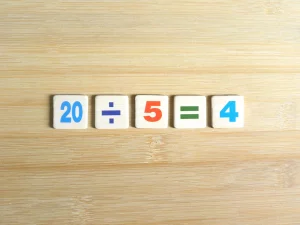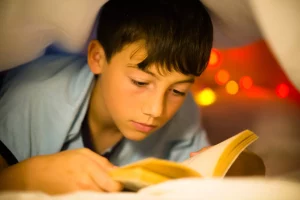Being a GCSE student can take an incredible toll on students and parents too, as they struggle to provide the best for their kids through schools, study guides, tutors, etc.
Students on the other hand, are struggling with their GCSEs, hoping to attain the highest possible grades. It’s true that some subjects are easier than others, and today, we’ll discuss one of the more difficult subjects and how we can make manoeuvring your way through it a bit easier.
1. Find a Maths Study Buddy for Your Child
A parent looking for advice will receive a lot of it, but this is definitely one of the more useful suggestions, not only for studying GCSE maths online but for efficiently absorbing material for any course.
Having your child hone their mathematical knowledge and basic mathematical skills with the help of a friend encourages your child to enjoy their ‘maths time’, boundlessly improving the chances of noticeable improvement in their basic interpretative skills.
2. Teach Your Child to Create Flash Cards
Distance learning can allow your child to procrastinate, become distracted, and neglect their course work. They will be inclined to focus on the maths skills they’re good at and ignore those that they struggle with, particularly the more complex aspects such as equations, algebraic expressions, cumulative frequency etc.
Creating flashcards takes your child’s study materials to a whole new level and, again, adds an element of enjoyment to their online learning experience.
Flashcards are a quick and easy way for children to absorb key information and for parents and tutors to recognise which areas need more in-depth study. Flashcards are also small and portable, unlike notes and past papers.
3. Encourage Your Child to Use Different Learning Platforms
There is now an astonishing array of online learning platforms to help students studying maths GCSE including programs that introduce an element of fun into the online learning experience.
There are platforms offering puzzles, movies, cartoons, GIFs, and demonstrations, so a bit of research is bound to find an activity that appeals to your child. Engaging children in this way enhances their enthusiasm to learn and consequently turns study hours into happy ones, almost certainly guaranteeing an improvement in your child’s maths skills.
4. Introduce Your Child to Past Papers
Looking at past papers enables your child to understand some of the themes that may be covered in the exam and familiarises them with exam style questions. It’s important to remember that maths cannot be conquered simply by memorising course materials: continuous practice is the only way to improve maths skills.
5. Consider Online Maths GCSE Tutoring
If your child has tried all of the above but is still having trouble getting to grips with maths, you might consider one of our Jersey maths tutors.
A personal tutor will accompany your child through their online GCSE maths journey, offering individual one-to-one attention and ensuring that they understand each topic before moving on to the next.
Nearly all students, even those who already excel at maths, benefit from one-to-one tuition. Your child will receive tutor-marked assignments that will thoroughly explain errors, what caused them and how they can be overcome in future.
6. Help Your Child Plan Their Studies and Structure Their Day
In order to acquire any GCSE qualification, especially mathematics, your child must understand the importance of organisation and planning. They should be aware of the number and content of the topics they are expected to cover and organise their studies accordingly.
Helping your child to structure their day involves creating a realistic to-do list that includes online GCSE math time, perhaps other subject time, chores, and of course, some fun activities for the sake of serotonin and adrenaline.
This will keep your child calm, attentive, and capable of giving proper focus to each activity. Additionally, it will teach them about priorities, which will benefit them during their exams and, in the long term, when considering their employment opportunities.
7. Teach Your Child to Block Out Distractions
Cell phones, iPads, and even books can cause irresistible distractions for children who should be studying. Rather than removing their devices, children should be encouraged to put them aside themselves during the time allocated to other, more important activities such as learning GCSE mathematics.
As a last resort there are many apps mobile phone options that allow you to time limit certain activities, closing them completely for certain periods to help users focus.
8. Find Topic Organised GCSE Maths Past Papers and Course Materials
This is related to past papers and their significance. If your child finds the vast array of maths topics confusing and overwhelming, topic organised past papers may help by introducing previously unstudied subjects one at a time.
Studying exam questions by topic makes for organised revision time.
9. Explain Why Not to Wait Until the Eleventh Hour
Procrastination is more or less inevitable when children don’t feel a huge amount of enthusiasm for the task in hand. They can easily convince themselves that they have plenty of time, can leave all the work until the last possible minute and still emerge triumphant from the exam.
As mentioned above, planning and prioritising is key, and parents should encourage children to think about the structure of their studying and how NOT leaving everything last to the last moment is much more beneficial. Staying up late, panicking, the night before an exam is the worst type of preparation!
10. Reward Your Child
Rewarding your child for their time spent working is good for both you and them. For younger children simple pleasures such as outside playtime or extra screen time will do it, and in any case, everyone needs a break from working on a screen.
Older kids might require more advanced rewards; an increase in their allowance, permission to stay out a little later, or a contribution to that new phone case or set of earphones they’ve been after. There are many ways to reward your child for working hard (but be careful not to spoil them). Your appreciation will contribute to their educational advancement as well as their relationship with you.
11. Create an Exam Environment at Home
Lastly, your child will sit their GCSE maths exam under specific conditions and it’s a good idea for them to have practiced working in a similar environment. As far as you can, re-create the exam environment for them so that they can experience the ‘exam-mood’ as frequently as possible.
You can do this by arranging somewhere quiet for them to sit where they won’t be distracted and removing all electronic devices (except a calculator). The GCSE exam involves strict time allocations for each question; so, get your child used to timing how long they spend on problem-solving and linear equations, and how long it takes to write up the results.
Can You Study GCSEs Online?
Absolutely! Any GCSE exam, regardless of the examining body can be studied online. As a GCSE private candidate, studying from home has never been easier, thanks to the countless platforms offering online teaching.
Additionally, most schools that qualify as exam centres are working to make all of their materials available online, offering even more resources for students studying for GCSEs online.
Do You Pay a Fee for Studying GCSEs Online?
As many of the platforms we’ve discussed above do not require a subscription, your child can attend the courses for various GCSEs for free and can have a free GCSE maths tutor online.
However, sitting the exam itself carries a fee, although many schools and exam centres offer payment plans to make things easier. This fee covers administration and, of course, marking and grading by experts. So, the course is free, but there is a cost involved in having your child’s maths skill assessed and receiving the award.
How Many Hours Study is Right for GCSE maths?
In order for a student to truly grasp all aspects and topics of the maths GCSE curriculum an average of 120 to 200 hours is required. If these hours are used efficiently, the entire curriculum can be covered twice, and mountains of gcse maths past papers can be worked through.
Final Thoughts
In conclusion, the study of GCSE maths requires proper focus and time allocation. Moreover, teachers and tutors will have a major impact on how your child receives the necessary information and retains it. Clearly, the use of an expert maths tutor is beneficial, and in some cases, a necessity for your child’s progress.
As we have seen, some schools and exam centres offer monthly payment plans, so payment need not be a barrier to offering your child the best tuition available.
We hope these tips are useful!





